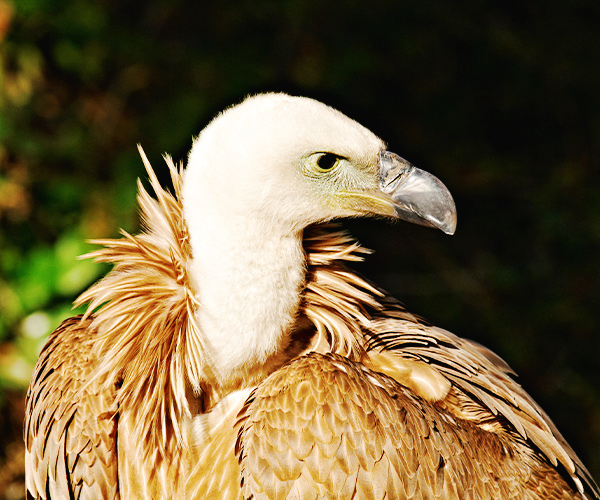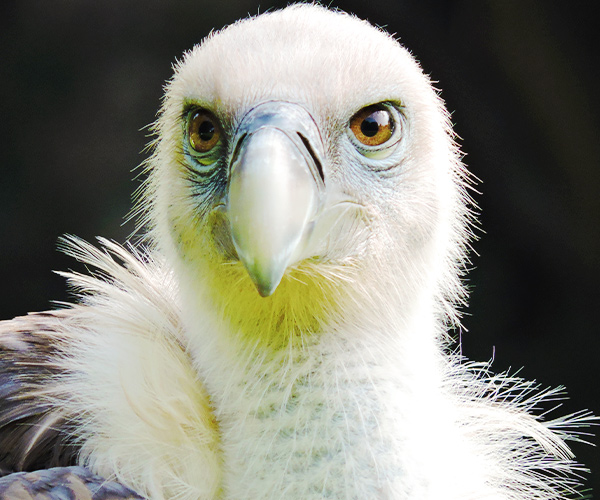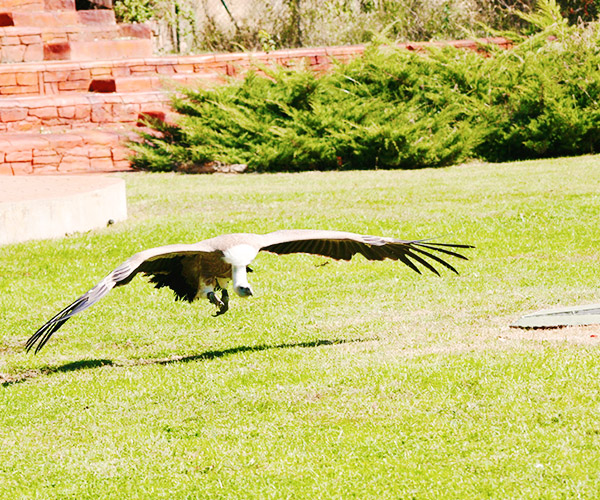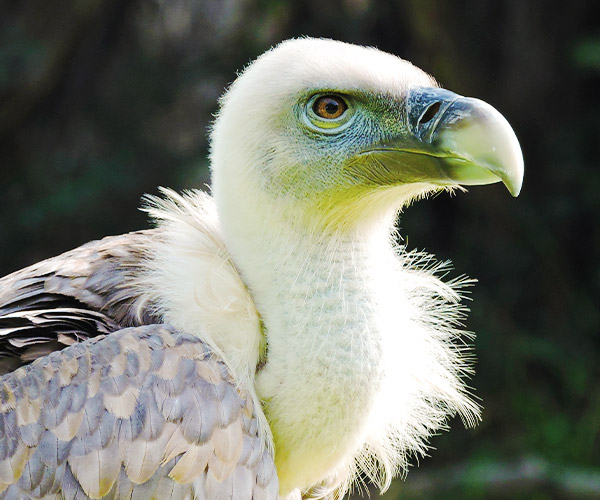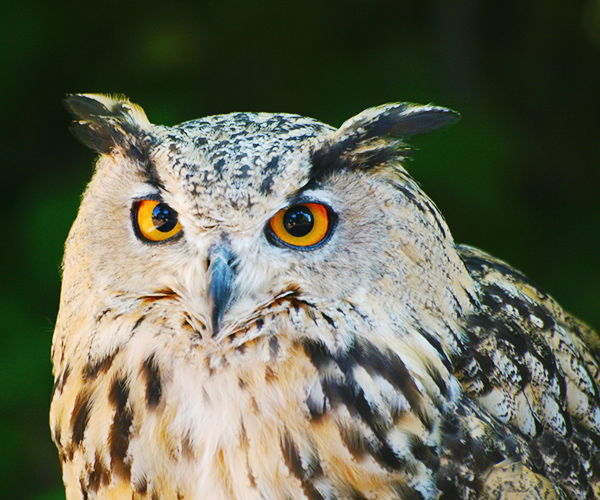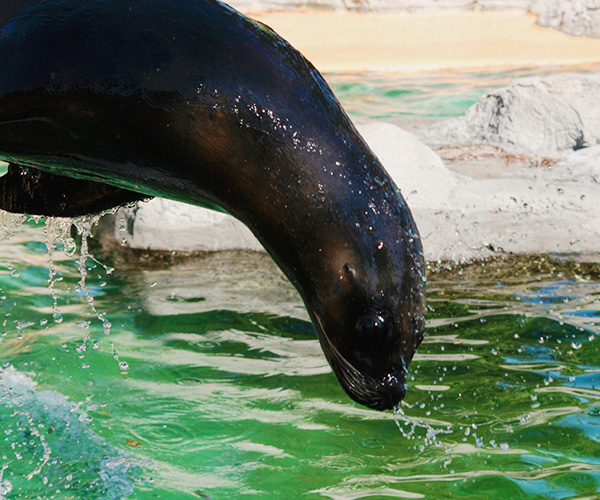The griffon vulture is one of the largest birds of prey in Europe. Its incredible eyesight allows it to spot, at great distances, dead animals on which it swoops and dives to end up making wide circles and landing next to the carcass.
At the base of the neck it has a series of long white and tawny feathers, while on the front of the wings and belly the plumage is tan (and on the rest of the body, dark brown). Its beak is hooked and allows it to tear off large strips of meat with ease. The legs are gray and rather weak, since they are not needed to capture prey (like eagles or hawks).
This vulture is a gliding rather than a flying bird (it barely moves its wings).
Griffon vultures usually fly at altitudes ranging up to 2000 meters above sea level. They are capable of traveling up to 300 kilometers in their search for food, especially in the case of large mammals.
They live in colonies that sometimes group hundreds of pairs and, in places where the density of specimens is high, they can even occupy nests of other species such as the Egyptian vulture or the bearded vulture. They usually reproduce at the beginning of the year, incubating a single egg for approximately 50 days. The care of the single chick is practically shared by male and female, and lasts a little more than 100 days.
